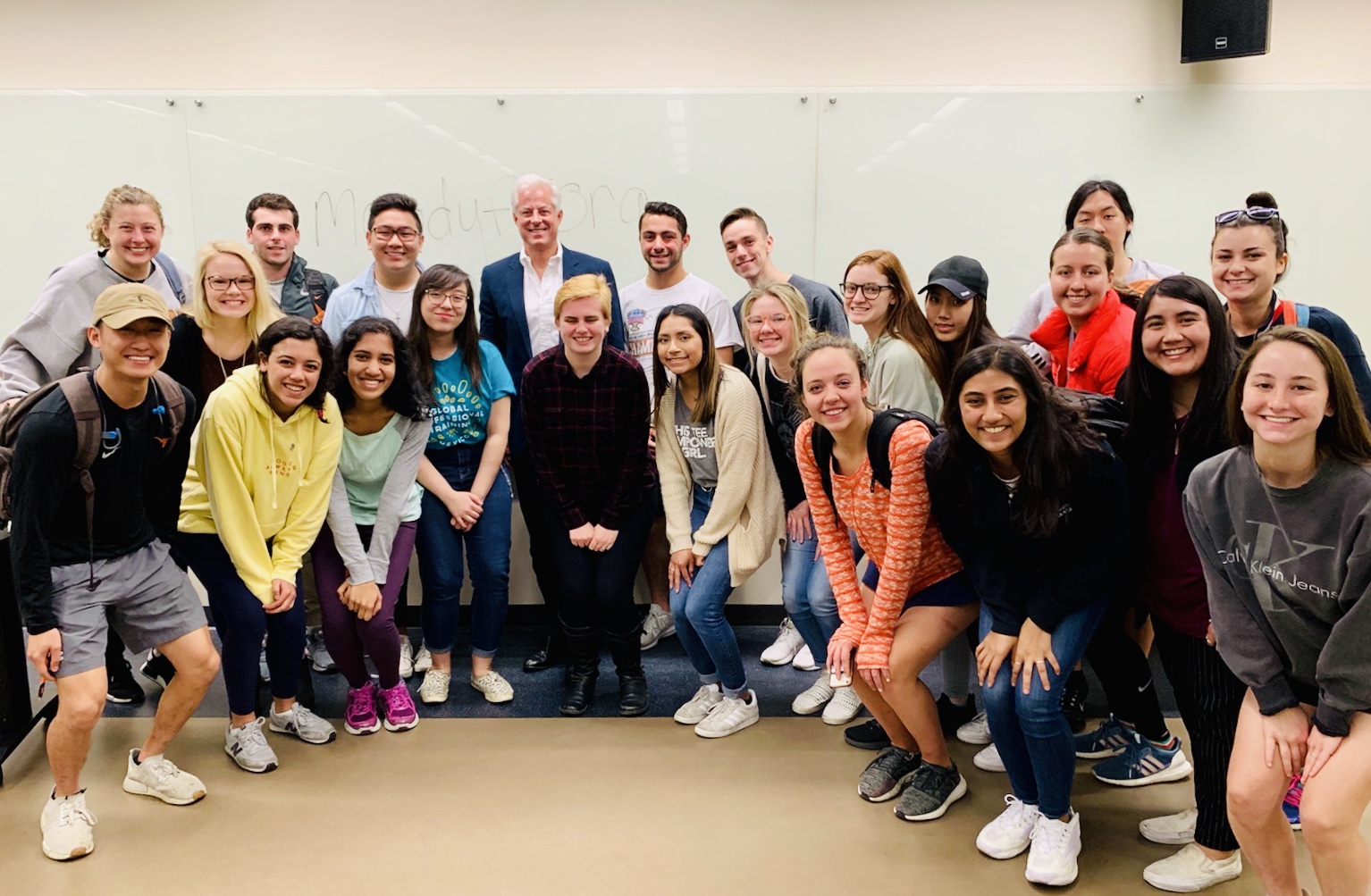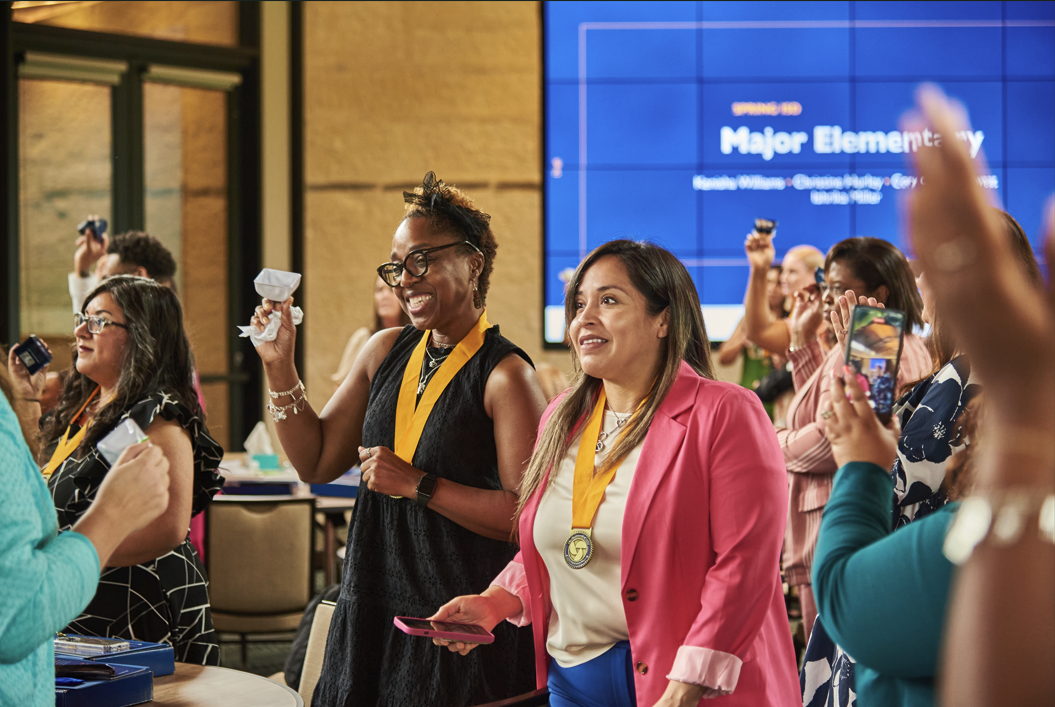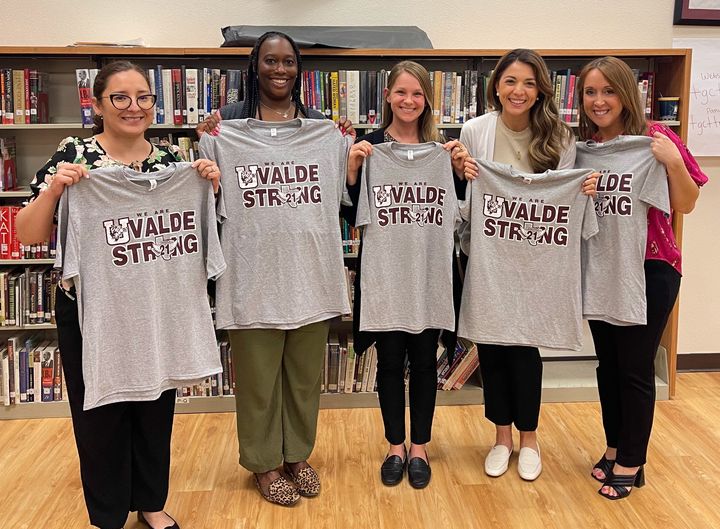
Contributed Post: Education Philanthropy in Texas
Ross Moody’s guest lecture at the Moody College of Communication
The Texas Legislature continues to debate property tax reform, teacher salary increases and other important education funding issues, but a focus on fixed costs can sometimes limit the reach of innovation. As a private charitable organization, the Moody Foundation has a unique opportunity to fill in the gaps of our educational system for current and future generations of Texans by funding aspirational programs that make a substantial impact.
I’ve always had a deep appreciation for education, which serves as an engine of opportunity, leading individuals on a path of success. Recently, I had the honor of guest lecturing to a Communication for Development and Philanthropy class of 44 students at the Moody College of Communication at The University of Texas at Austin. We had a lively discussion about the history of the Foundation, trustee responsibilities, the grant application process and Foundation-initiated projects.
For decades, The Moody Foundation has had a close and special relationship with the University of Texas.
In 2013, with our $50 million commitment, UT Austin officially named the Moody College of Communication and created the largest endowment for the study of communication for any public university in the nation. We sought to increase the presence of the university on a national and international basis and improve the quality of education by recruiting the best professors, administrators and students. We recently celebrated the Moody College of Communication’s five-year anniversary, and I, as an alumnus, couldn’t be prouder to be affiliated.

Moody Foundation-initiated projects, such as Moody Gardens, Generation Moody, the Moody Scholars program and the Transitional Learning Center, have been designed to address the root causes of need in Texas communities, primarily in education. We’re dedicated to the future of Texans and that begins with students and education. I’m beyond humbled by the progress of the Moody Scholars program and the Generation Moody Education Initiative.
My father, Robert Moody Sr., began to expand the Foundation’s definition of “benefit” to include transformative investments in projects like the Moody Scholars program, which was initiated in 1969 to help young Texans pursue higher education. Since its inception, Moody Scholars has awarded over $15 million to assist more than 5,000 students throughout the state. We work closely with a selection committee comprised of six individuals with extensive backgrounds in admissions, financial aid, academic administration and business throughout the process.

Over the years, I’ve witnessed an educational gap in the Foundation’s and my ancestors’ hometown of Galveston. There were few coordinated programs that offered opportunities for building students’ achievement from cradle to career. What started as an observation turned into the creation of the Generation Moody Education Initiative, which launched in 2018. Since then, we have distributed grants totaling over $28 million to provide exceptional education opportunities for infants through high school and into post-secondary learning in areas focused on literacy, science, technology and math.
We’ve also joined forces with Galveston Island schools and nonprofits and connected longstanding Moody Foundation projects like the Moody Scholars program to enhance educational attainment, regardless of a family’s ability to pay. Boosting the overall level of educational achievement is one of the best ways to contribute to the prosperity of any community, and we continue to make this a priority in our grant-making strategy.

Texas is the Moody Foundation’s home, and we believe that bettering society starts with the improvement of our educational systems. The students of today will pioneer the innovations of tomorrow. This is the very kind of undertaking our founders, W.L. Moody, Jr. and Libbie Shearn Moody, would have envisioned when they first created our charter “to benefit in perpetuity present and future generations of Texans.” We will continue to work for the benefit of Texans, and it is our honor and privilege to do so.




